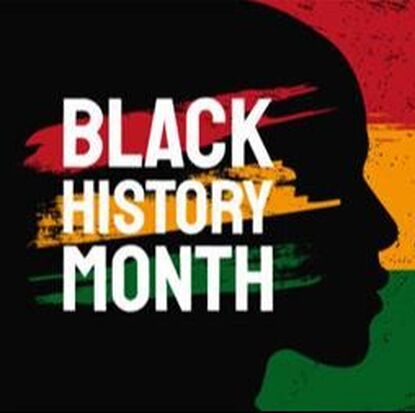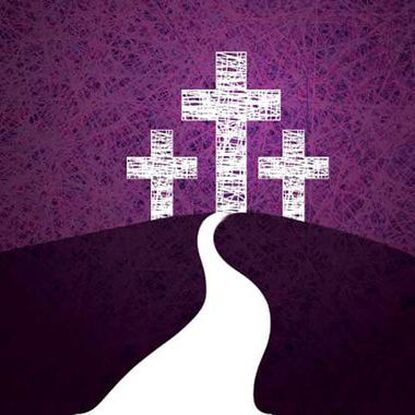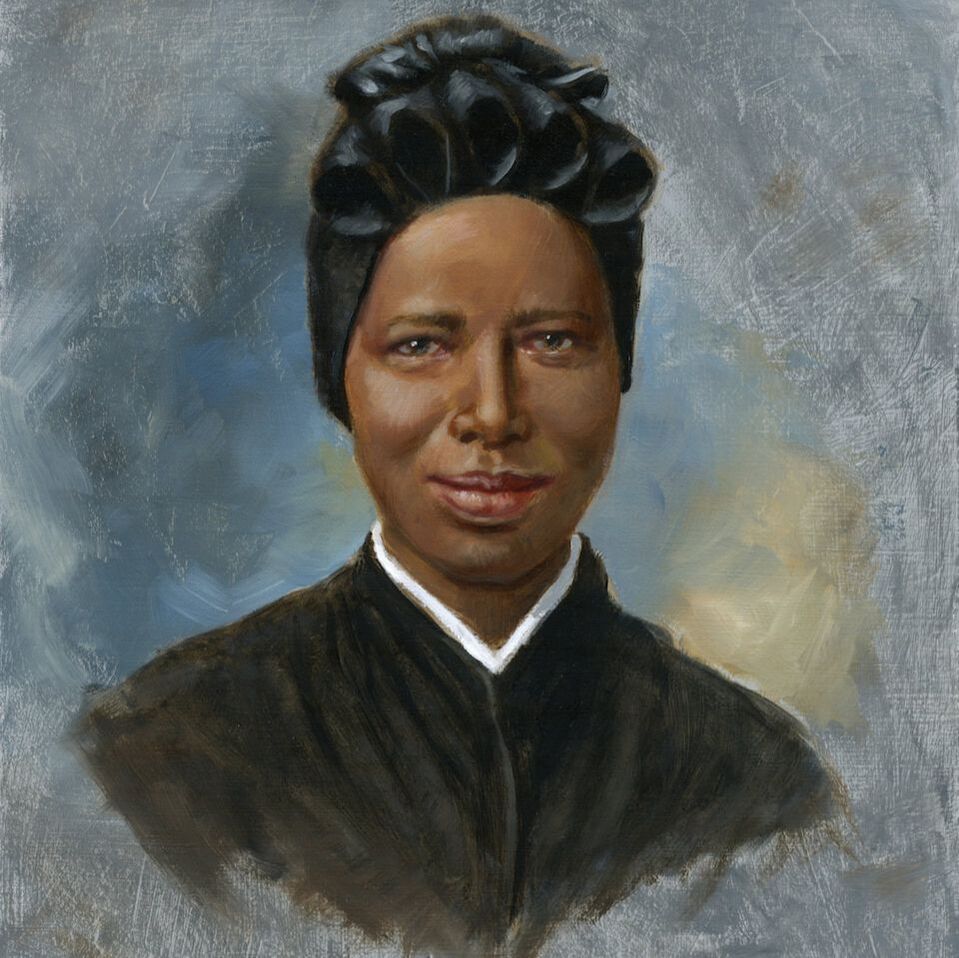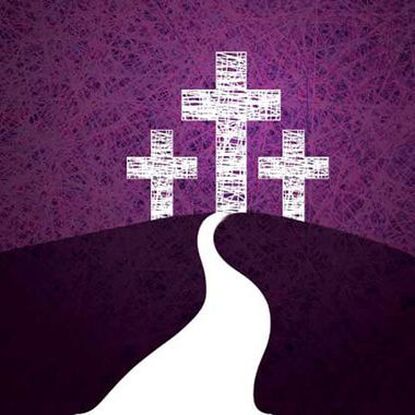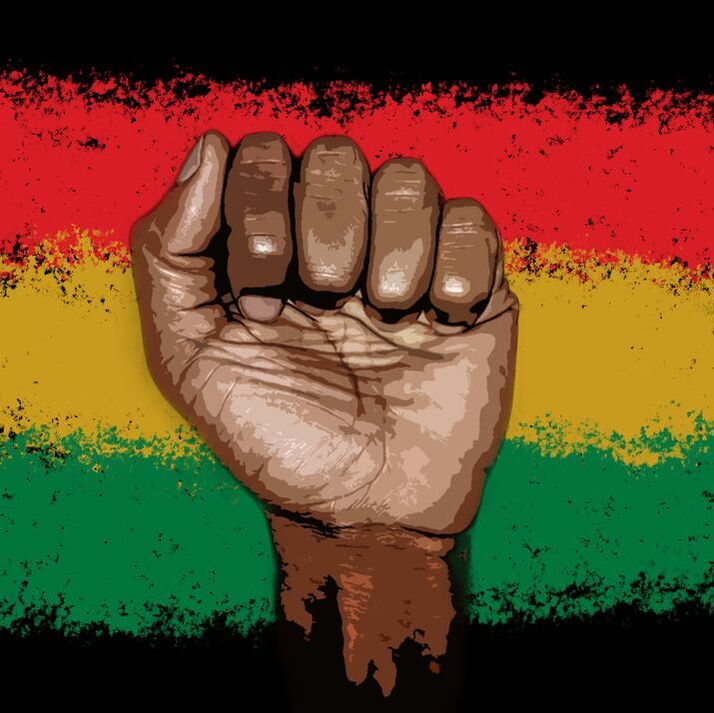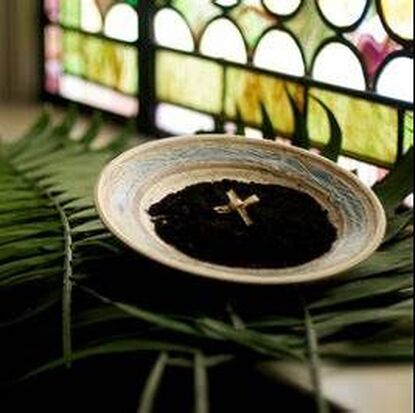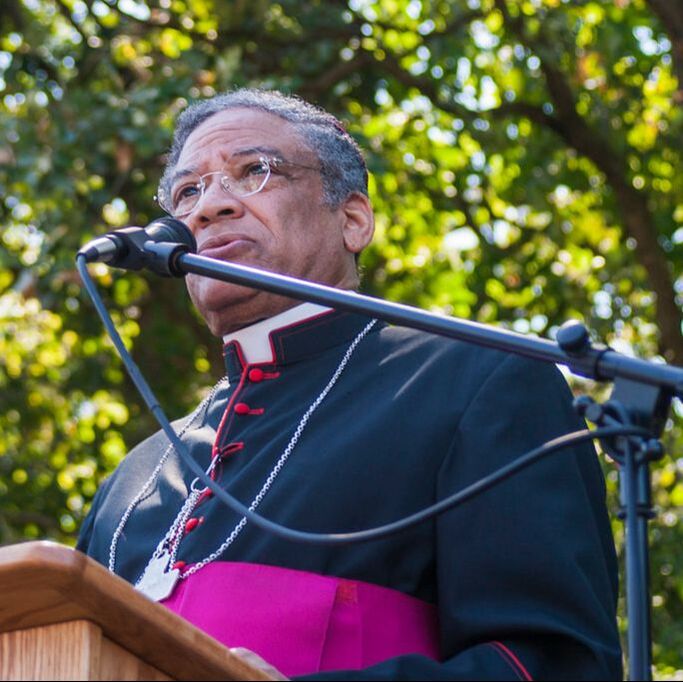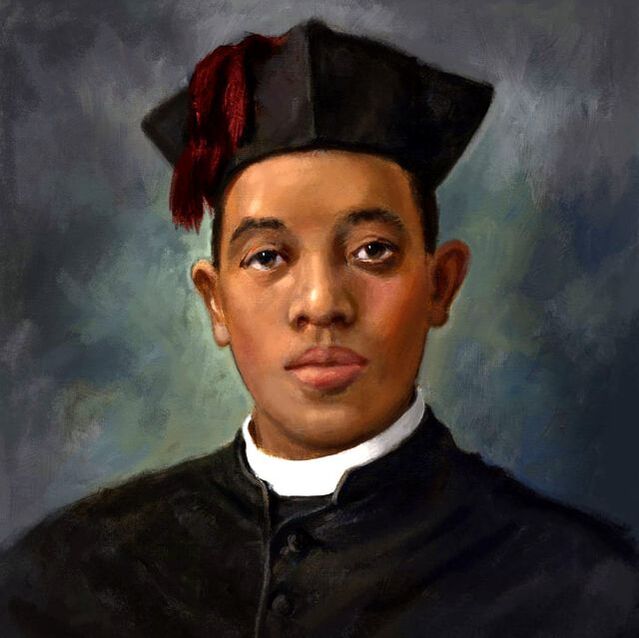|
Reflections of a Journey: Black History Month Through the Eyes of a Black Woman Educator By Dr. Tina Curry Adjunct Faculty, DePaul University As a black woman and an educator, Black History Month embodies a period of reflection, celebration and education that is deeply personal and professionally significant. My journey is filled with stories of perseverance, lessons of strength from my ancestors, and a constant striving for excellence despite the obstacles placed by systemic inequalities. These experiences not only shaped my identity but have also fueled my passion as an educator. Growing up, I was acutely aware of the narratives that sought to define what I could be and achieve based on the color of my skin. However, inspired by the stories of black women who came before me-women like Maya Angelou, Katherine Johnson and Ida B. Wells-I learned that my identity is a source of strength, not a barrier. These women and countless others paved the way for me and so many others by challenging the status quo and demanding equality and respect. Their legacy is a testament to the power of resilience, intelligence, and grace in the face of adversity. In my role as an educator, I strive to embody these qualities and pass on the lessons of our history to the next generation. Black History Month provides a unique opportunity to delve deeper into these stories, highlighting the contributions of black individuals across all areas of society. As a black woman educator, I am committed to creating an inclusive and equitable learning environment where every student can see themselves reflected in the stories we tell and the lessons we teach. As we celebrate Black History Month, I am reminded of the responsibility I carry as a black woman educator to honor the past, celebrate the present and forge a brighter future. This month and every month, I am committed to enlightening and empowering the young minds entrusted to me, ensuring that the legacy of our ancestors lives on. Dr. Tina Cury is an award-winning coach, professor and teacher. Dr. Curry brings a 24- year distinguished track record and innovative success as an educator in Chicago, as well as her experiences as a valued member of the adjunct faculty at National Louis University and a lead equity facilitator for DePaul University’s Office of Innovative and Professional Learning. Dr. Curry currently works as lead instructional coach at Fernwood Elementary School in Chicago. She has been an invited presenter for IWP, AERA, LRA, NCTE, and IRC as well as a featured guest on Coaching Conversations Podcast with Jim Knight. Dr. Curry is a 2023 and 2024 nominee for NCTE Nominating Committee, College Section. Her accomplishments include being a contributing writer to Teaching for Racial Equity: Becoming Interrupters winner of the 2022 Excellence in Equity Book Award. Her support for professional learning at the leadership and classroom level have transformed lives professionally and personally. She is inspiring, insightful, and ignites a passion for coaching and equity.
Second Sunday of Lent Reflection
Tina Carter Board of Directors and Formation Team Member Readings: Genesis 22:1–2, 9a, 10–13, 15–18 Psalms 116:10, 15, 16–17, 18–19 Romans 8:31b–34 Mark 9:2–10 Ten years ago, we grew butterflies at the library. We found caterpillar eggs on leaves, put them in the cage in the middle of the floor, and for several weeks watched in great awe as the caterpillars ate, grew, shed their skin, and pooped a lot. Some could not shed their skin and died. Others did not come out of their chrysalises and remained frozen in a translucent state. We made sure that the caterpillars had plenty to eat but each journey was theirs to make. Those of us witnessing the miracle did not fully understand what was happening to them but we had to pay attention to their needs. Even then, of the ten caterpillar eggs we started with, only two became butterflies. The two that completed the transformation became new creatures drawing in fresh breath and were then set free to fly out into the beautiful blue sky. In the readings on this 2nd Sunday of Lent, we are reminded of Abraham's transformation when God asked him to sacrifice his son of promise, Issac. Abraham trusted God so completely even if he did not understand the task, that he prepared to do it. Abraham’s descendants became as numerous as the stars in the sky. He became the patriarch of three religious faiths, Judaism, Christianity, and Islam. Paul reminds us in the second reading that “If God is for us, who can be against us?” God was willing to sacrifice his only begotten son for our sake. We even see in the gospel reading that Jesus was continuing his preparations for the great sacrifice. Peter, James, and John had the honor of witnessing Jesus talk to the great prophets Elijah and Moses. God knew that Peter, James, and John did not fully grasp the sacrifice Jesus would make on their behalf and ours, but God implored them to listen. They had to listen with their heads and hearts, pay attention to the signs of the times, and take heed when God said to them on that mountaintop “This is my son…listen to him.” As Jesus was making this transition in his earthly life, Peter, James, and John were also being transformed in their own lives. In the coming weeks, they will experience what faith, trust, and sacrifice look like and whether they are ready to become new creatures that are drawing in fresh breath from the Holy Spirit who is then set free to speak about the freedom they found in Christ. Transformations are never easy. They require faith, trust, the ability to listen, learn, work, and most importantly, sacrifice the old way of life. Transformation is a choice. The transitions that we make from one point of our lives to the next prepare us for the next leg of our journey. Some may help you through the process, but the transformation is yours and yours alone. There are those who for whatever reason are unable to complete the transformation and revert to an old way of life. Others start and stop many times but can complete the transformation and breathe in fresh breath from the Holy Spirit. Romans 12:2 reminds us to “not conform to the pattern of this world but be transformed by the renewing of your mind. Then you will be able to test and approve what God’s will is—his good, pleasing, and perfect will.” The choice is yours. Here is just one example of why Black History Month is so necessary: Josephine Bakhita, a slave who became a nun, is celebrated on February 8.
This woman's journey, this strength, this personality, this aura... It overwhelmed me. Josephine Bakhita (1869-1947) was born in Darfur. At the age of 7, she was kidnapped, then bought and sold several times by Muslim slave traders. She was 14 when her master became the Italian consul in Khartoum (the capital of Sudan). He sent her to Italy, where she worked as a domestic servant and later as a nursemaid. She joined the Canossian Order of the Daughters of Charity, devoting herself to the service of the poorest. She died at the age of 78, in 1947, and was canonized by John Paul II in 2000. Over the course of the twentieth century, a whole range of imagery developed in Italy around her saintly story. To read the life of Josephine Bakhita is to consider the destiny of a little girl who walked 800 km over burning sand and stones, who witnessed atrocious scenes, who was commodified by becoming a slave. There were "many tears shed when reading her life story, not tenderness but accompaniment." It's impossible not to think of all those who are still reduced to slavery today, whether in Africa or Asia, and even in Europe. Despite this harsh life, Josephine Bakhita never gave in to violence or bitterness. And that's probably what makes her "a very astonishing woman". Firstly, it's "an unimaginable strength of life", and secondly, it's an exceptional path of resistance. Anyone else in her place might have given in to "bitterness, malice or madness". "Some people are stronger, more intelligent, more luminous than others." I also assume that Josephine Bakhita received "immense love" from her parents, which led her to the love of Jesus, which is, in my opinion, the only path to follow. She lived a "constant inner struggle", in "permanent insubordination". Today, what I want to share with all of you is "Bakhita's reflection". That of a "light that all who came close to her felt". And the reflection it nourishes in us in the 21st century. Keep celebrating, Madame Laurence Irving French Instructor
This first Sunday of Lent we hear the iconic story of Noah, his family along with pairs of animals taking shelter in a wooden ark. Following God’s command all are spared from the destructive forces of the mammoth flood. From the torrents God’s Covenant surfaces God’s promise to all humanity and our Planet: I recall the covenant I have made between me and you and all living beings, so that the waters shall never again become a flood to destroy all mortal beings.” Gn 9:15
St. Peter references this catastrophic event as prefiguring Baptism. Humanity's sinful nature turns against God and one another wreaking havoc and severing relationships with all creative order. Even today, we continue to wrestle with our brokenness and vulnerability. We hear God’s promise again in Peter’s Letter (Pt 3:18-22). Immersed in the waters of Baptism, washed and renewed, we are infused with the outpouring of the Spirit. Through our Baptism we awaken to God’s Spirit calling us to change. We are renewed in Christ! What’s holding us back? There’s no time to wait. Mark’s Gospel seems to capture that sense of urgency when he writes about Jesus’ desert experience. “The Spirit drove Jesus into the desert where he was tempted by demons and ministered by angels.” Mark gets to the point. Jesus moves quickly ushering in a new era as he proclaims the message. "This is the time of fulfillment. The kingdom of God is at hand. Repent, and believe in the gospel." [Mk 1:12-15] These threads: God’s covenant with humanity and all living things, the life-giving waters of Baptism, the call to repent and believe in the Gospel weave together a potent message: We are called to turn away from sinful ways and to receive the outpouring of God’s grace. We are on this Lenten journey to encounter Jesus the Christ, the Risen One in the Easter Sacraments and in all of Creation. Lent creates the heart-space for prayer and reflection: In my own life, where am I being called to grow and be transformed? How conscious am I of the brokenness and vulnerability of our Planet Earth? Do I really love myself and all that God is calling me to be in my life? This Lent may we recommit to the life-giving waters of our Baptism. Your ways, O Lord, are love and truth to those who keep your covenant. Psalm 25 To be Black and Catholic is a seemingly paradoxical reality. On the one hand, it is a rich and joyful tradition, of which one continuously is learning and receiving new information, stories, and expressions. Within the last month alone, I have learned about Anne Marie Becraft, who founded one of the first Catholic schools for Black girls and became one of America’s first Black nuns. I also learned about the legacy of Black nuns in the United States, the long history of Black women being rejected from white-run religious orders, and the importance of specifically Black led orders like the Oblate Sisters of Providence and the Sisters of the Holy Family.
Being Black and Catholic also means experiencing the oneness of our Catholic faith in a unique and challenging way. Unlike other denominations, who split over the issue of slavery (ex. Baptists and ‘Southern’ Baptists) Catholics were Slaves, Slaveholders and Abolitionists; all in the same one Church. Likewise, in the Civil Rights Era, both Segregationists and Civil Rights Activists were held by the oneness of their shared Catholic faith. This is no surprise to us today, as we likewise have many Catholics on the Right and the Left; many Catholics identifying as Republicans even against our country’s second Catholic Democratic President, Joe Biden. This tension is not just individual but systemic. The Church consistently condemned the Atlantic Slave Trade, as early as 1537 in Sublimus Dei when Pope Paul III wrote: “[Satan] has stirred up some of his allies who, desiring to satisfy their own avarice, are presuming to assert far and wide that the Indians...be reduced to our service like brute animals, under the pretext that they are lacking the Catholic faith.” By contrast, there are countless examples of slavery being widely accepted by Catholics in the United States, including several southern Bishops and most famously the Jesuits of Georgetown University (who have since made attempts to offer reparations to descendents of slaves owned & sold by them). At the same time, Catholic slavery was better than most since Catholics were required to evangelize and give sacraments to their slaves. This meant educating their slaves to read & write and provide religious education- all this at a time when in many states it was scandalous and radical to provide such education, if not illegal altogether. In the face of this history, one might ask “Why stay Catholic? Why stay a member of an institution which has not supported your ancestors- and does not always support you even today?” Indeed, Black Catholics exhibit an Uncommon Faithfulness, as the title of the seminal text on Black Catholicism suggests. Ultimately Black Catholics remain faithful because the Church is our home. To be truly Catholic means to be “universal”- embracing all cultures, traditions and identities under the unity of Jesus. Christ opened the doors of salvation, not to one race, or gender, or orientation, but to all people. The Catholic church is the Church who does not divide over the purity or sinfulness of its members, but wrestles as one human family with the good, the bad and the ugly. Ash Wednesday 2024
Patricia Tomich Senior Director, Mission Integration Today we begin our 40-day Lenten Journey. Though not a holy day of obligation for Catholics, Ash Wednesday draws countless worshipers streaming into local churches. Our foreheads are marked with ashes intoned with the words: "Remember that you are dust, and to dust you shall return" or “Repent and believe the Good News.” We are reminded that ashes symbolize our own mortality and need for repentance. So woven into our Catholic Tradition are the three practices of praying, fasting and almsgiving. These timely practices carry potential to make Lent both meaningful and transformative as we journey from the gritty ashes marked on our foreheads to the foot of the Cross. Yet we know the deepest of hopes, that the Risen Christ remains with us on this journey. As we embark on this journey, what will our Lenten fast look like? The Church reminds us: that Catholics 14 years of age and older abstain from meat on Ash Wednesday and all Fridays during Lent, including Good Friday. And, to fast on Ash Wednesday and Good Friday means Catholics age 18 to 59 limit the amount of food they eat. Only one full meal, and two smaller meals that together do not equal a full meal, are eaten. Exceptions are made for pregnant women and those who need regular meals for medical reasons. We can fast: from social media or from favorite beverages drinking only water during the day, fast from complaining and gossip (imagine the positive impact your presence would have on the work or school environment) or give up on-line shopping and choose to shop at a small local business. Lent beckons . . . spend some time in prayer. The Prophet Joel in the first reading for Ash Wednesday calls us “Even now says the Lord, return to me with your whole heart, with fasting, and weeping, and mourning; Rend your hearts and not your garments, and return to the Lord.” Joel (2:12-18). Try 10 minutes a day and experience the difference. The call to almsgiving reminds us to do works of mercy and compassion. Imagine. If all who read this reflection made a commitment to be kind, express gratitude and each day expressed love for oneself. The outcome: proclaiming Good News - God’s merciful Love! Other ways to give alms: for each day of Lent, write a note to someone special in your life, make a meal for an elderly neighbor, show an act of kindness to someone who is difficult to like or raise funds for organizations such as Operation Rice Bowl or a favorite charity. May our Lenten Journey be one of profound grace and transformation as we prepare to celebrate the Risen Christ. Black History Month February was recognized by US President Gerald Ford in 1976 calling upon the public to “seize the opportunity to honor the too-often neglected accomplishments of black Americans in every area of endeavor throughout our history.”
An annual observance like this is traced to an annual commemoration that began in 1915 following the 13th Amendment of the US Constitution abolishing slavery in the United States, and later Negro History Week going back to 1926. Other countries around the world including Canada and the UK also devote a month to celebrating black history. Today, Black History Month is a time to honor the contributions and legacy of African Americans as educators, engineers, people involved in the various arts, and the sciences, as civil rights pioneers, as religious leaders, sports figures, musicians, architects and more. Annually with this commemoration, men and women who deserve mention are raised up who are well known and others who have passed into obscurity and are only recently recognized for their gifts as we discover them from archives, history books, libraries and the heroes and heroines of local communities, to say nothing of those who have been deliberately erased from the cornerstones of the American landscape. One of those obscure figures come to light in recent years is a priest of our Archdiocese of Chicago, Augustus Tolton (1854-1897), who was born into slavery by reason of his parents being enslaved on two neighboring farms located in Brush Creek, Missouri. In the middle of our nation’s Civil War and upon the decree of Emancipation by President Abraham Lincoln freeing the slaves, with his mother and two siblings he escaped from the Catholic farmer who owned the Toltons, hunted by Confederate bounty hunters and eventually crossing in a rowboat the treacherous waters of the Mississippi River to arrive at the free state of Illinois. Gus Tolton’s father had escaped earlier to join up with black troops newly established on the Union side, but he died shortly thereafter. Several priests and religious sisters tutored Augustus when schools denied him an education because of the color of his skin. Franciscan friars gave him a college scholarship and therefrom maneuvered his acceptance at a prestigious seminary in Rome where he studied for six years along with other students from around the world preparing to work at mission stations in far off lands. Father Tolton returned to Quincy as a newly ordained priest the summer of 1886 to a situation of mixed mood that was not always complimentary of him and his priestly service. From his childhood through his adolescence and young adulthood Tolton was forced to navigate the choppy waters of racial acceptance that saw him being slighted and pushed around and abused with ugly words; yet appreciated by others for his open and indiscriminate temperament that welcomed any and all, black or white. With these traits of person Tolton faced the unreadiness of society and the Church which saw him after three years expelled from his first assignment at St. Joseph mission church in Quincy Illinois. Archbishop Patrick Feehan of Chicago welcomed Father Gus to carry on work with black Catholics here. He served in Chicago the last eight years of his priesthood. Actually, Father Augustus Tolton is known as the first priest of African descent to be ordained by the Catholic Church for service in the US. Remarkably, despite the ill treatment he received in Quincy he prevailed upon his mother to ensure that when that time came he was to be buried in Quincy, the town he loved and its people despite those who were not so open to him or found his priestly work an obstruction to the prevailing racial mood of the times, namely, that white and black people were to be kept separate from one another. In this, Father Tolton proved a pioneer of racial reconciliation and integration, a symbol of the virtues of priesthood and the proclamation of the gospel injunction of love of neighbor and service. Father Tolton provides an example of how we can get through protracted disappointment in life with our faith, our hope and love found intact after the example of Jesus who forgave his enemies from the cross. Father Tolton’s cause for canonization as a saint is pending since 2010 in Rome. Pope Francis dubbed him “Venerable” Father Tolton in June 2019. Pray, that we might see one day soon his name mentioned at the altar with all the other saints. Bishop Joseph N Perry Archdiocese of Chicago |
Archives
July 2024
Categories |
MANY parts. ONE Body of Christ. EVERYONE belongs here.
Locations & HoursMailing Address
St. Scholastica Monastery 7430 N. Ridge Blvd. Chicago, IL 60645 Directions Hours of Availability Contact Staff to schedule meetings After Hours (Immediate Assistance) Phone: 224-307-4048 Email: [email protected] Why We Use PronounsSign up for email and text notifications!
Giving to UCYM |
Can't Find What you Need? |
© United Catholic Youth Ministries. All Rights Reserved.



